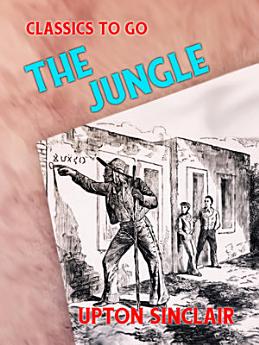The Jungle
Mar 2020 · Otbebookpublishing
Ebook
334
Pages
family_home
Eligible
info
reportRatings and reviews aren’t verified Learn More
About this ebook
"The Jungle" by Upton Sinclair is an enthralling anthology that offers a vivid portrayal of early 20th-century immigrant life in Chicago. The centerpiece story, "To the Workingmen of America," immerses readers in the vibrant yet harsh realities of Lithuanian immigrants such as Marija Berczynskas, Ona Lukoszaite, and Jurgis Rudkus. Opening with a joyous wedding celebration, the tale highlights the stark contrasts between fleeting happiness and the relentless challenges of working in the meatpacking industry. As the characters navigate the bustling stockyards, the narrative delves into themes of resilience, community, and the pursuit of happiness. This story provides a poignant exploration of immigrant struggles and dreams, capturing the essence of cultural identity and the socio-economic issues of the era. The anthology is a compelling read for fans of historical fiction, immigrant narratives, and stories of the working class. By painting a vivid picture of the challenges faced by Lithuanian Americans in Chicago, "The Jungle" remains a timeless reflection on the universal quest for a better life. Readers interested in political fiction and the meat industry will find this collection particularly engaging. This anthology is a must-read for those who appreciate stories that delve into the heart of immigrant experiences and the enduring spirit of the working class.
About the author
Upton Sinclair (1878-1968) was a prolific American author and social reformer whose works left an indelible mark on 20th-century literature and politics. Born in Baltimore, Maryland, Sinclair's early experiences with poverty and wealth disparity profoundly influenced his writing and activism. He is best known for his groundbreaking novel "The Jungle" (1906), which exposed the appalling conditions in the U.S. meatpacking industry, leading to public outcry and significant reforms, including the Pure Food and Drug Act and the Meat Inspection Act.Sinclair's career spanned over 90 books, encompassing novels, plays, essays, and non-fiction works. His writing often tackled social injustices, labor exploitation, and the corrupting power of wealth. A committed socialist, Sinclair ran for political office several times, most notably his 1934 campaign for Governor of California under the platform "End Poverty in California" (EPIC), which, despite its failure, influenced New Deal policies.Sinclair's influence extended beyond literature into the realms of journalism and film. His muckraking style inspired contemporaries and future generations of investigative journalists. He was a controversial figure, often criticized for his radical views and unflinching portrayal of societal ills, yet he remained steadfast in his commitment to social change.Modern readers may find Sinclair's life and work particularly resonant in today's socio-political climate, as issues of economic inequality, workers' rights, and corporate malfeasance continue to dominate public discourse. His legacy as a writer who wielded his pen as a weapon for justice remains a powerful testament to the enduring impact of literature on society.
Rate this ebook
Tell us what you think.
Reading information
Smartphones and tablets
Install the Google Play Books app for Android and iPad/iPhone. It syncs automatically with your account and allows you to read online or offline wherever you are.
Laptops and computers
You can listen to audiobooks purchased on Google Play using your computer's web browser.
eReaders and other devices
To read on e-ink devices like Kobo eReaders, you'll need to download a file and transfer it to your device. Follow the detailed Help Center instructions to transfer the files to supported eReaders.








